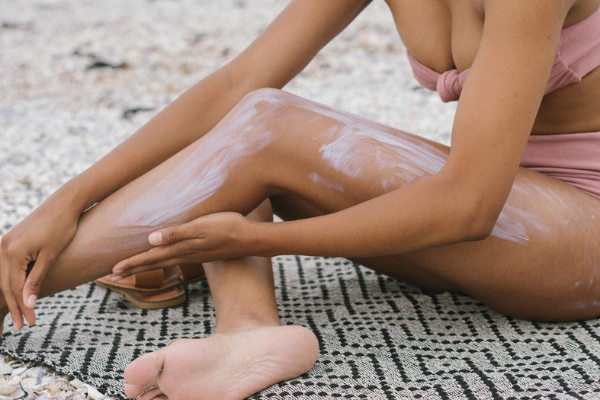Summer seems to be steadily approaching, as temperatures jump up and Brussels’ parks and terraces are enthusiastically frequented. But while the sun means positive news for most people, a Belgian campaign warns against the one thing that dampens the spirit: skin cancer.
It is the only type of cancer that has increased significantly in the past two decades, and a further increase is expected in the next ten years.
A Belgian initiative of dermatologists, Euromelanoma, is campaigning for more awareness about skin cancer. Founded in Belgium in 1999, the organisation grew out to be pan-European, as it is currently present in 28 countries.
And the campaigning helps, says dermatologist Belgian president of the organisation, Thomas Maselis: “In our country, we observe less advanced stages than in countries that are not campaigning.”
400% increase
“One in five Belgians will develop skin cancer before the age of 75,” Maselis told Het Laatste Nieuws. “Of all registered cancers, skin cancer is the most common cancer in our country, accounting for 40%.”
And those numbers are on the rise, as skin cancer has seen an increase of more than 400% over the past two decades: from 11,000 skin cancer cases in 2004 to over 45,000 cases in 2019, according to the national cancer registry.
The main reasons for higher rates are increased number of holidays in the sun, more radiation due to the depletion of the ozone layer and insufficient protection while tanning.
People continue to underestimate the phenomenon of skin cancer and therefore do not protect themselves sufficiently against the sun, Kanker.be writes.
Moreover, certain people are more at risk than others: having pale skin, often getting sunburnt, using tanning beds and having skin cancer in the family can increase your chances of getting skin cancer.
People over the age of 50 and those taking certain medication or having a faltering immune system are also at a higher risk.
How to prevent it?
Be kind to your skin, is Euromelanoma’s main message. Put on a firm layer of sunscreen at least 30 minutes before heading out, even if the sun doesn’t seem too bright.
“Check your skin yourself as much as possible and report suspicious spots and spots to your doctor or dermatologist,” Maselis added.
Related News
- Walk 10,000 steps a day in May to fight against breast cancer
- Cancer study detects patterns in DNA, could lead to personalized treatments
On top of that, don’t believe everything you hear: “For years, the cosmetics industry has been sending the wrong messages into the world. We should cleanse our skin every day, then use a toner and then moisturise again. That is absolutely not right!” Maselis told Gezond.be.
He says our skin can take care of itself perfectly, and dirt can simply be washed off with water.
Fortunately, skin cancer has a relatively low mortality rate: in 2017, 462 patients died of skin cancer. The main cause for mortality is melanoma, the most aggressive type of skin cancer.

